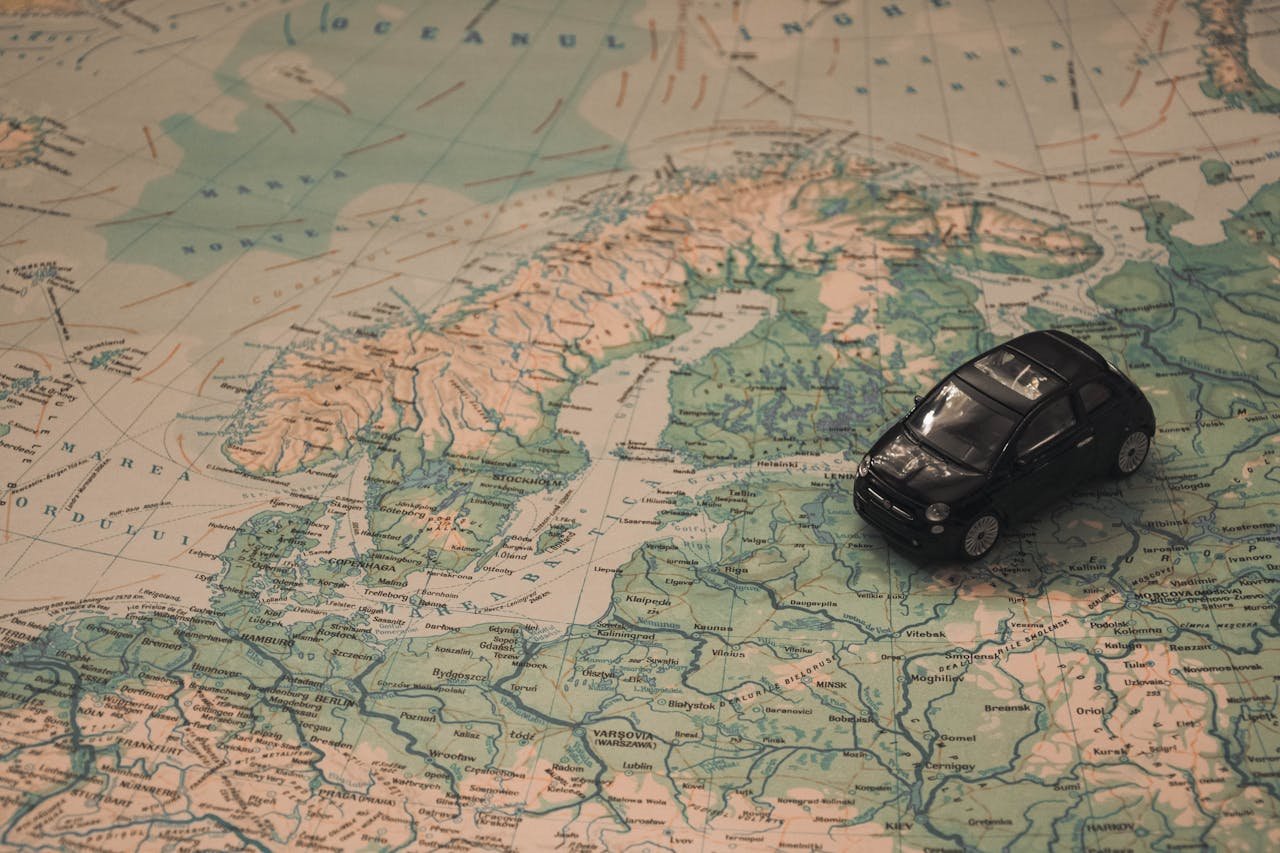Traveling through Europe offers an unparalleled mix of history, culture, and scenic landscapes, making it a dream destination for many. However, the perception that European travel is expensive often deters budget-conscious travelers. This ultimate guide to traveling Europe on a budget aims to dispel that myth by providing practical advice on how to explore this diverse continent without breaking the bank. From affordable accommodations and transportation options to budget-friendly dining and free attractions, this guide covers it all.
Europe is remarkably attractive for budget travelers due to its well-connected transport networks, a plethora of low-cost airlines, and myriad free or low-cost attractions. However, traveling on a budget does present its challenges, such as navigating currency differences and understanding local pricing. Our guide will address these issues, offering tips and tricks to ensure your journey remains both memorable and economical.
Throughout this guide, you will find comprehensive sections dedicated to each major aspect of budget travel. Expect to learn about cost-effective lodging choices, savvy transportation options including trains and budget airlines, and strategies to save on food without sacrificing quality. Additionally, we will highlight various free or low-cost activities and landmarks that you can enjoy without stressing your wallet. By the end of this guide, you’ll be well-equipped to experience Europe’s rich tapestry of cultures and histories while keeping expenses in check.
In essence, this guide serves as a roadmap for making the most out of your European adventure while maintaining financial prudence. Whether you are a seasoned traveler or embarking on your first journey, the tips and insights provided here will help you navigate the complexities of budget travel. Get ready to uncover the secrets to enjoying Europe affordably, ensuring that every experience is both enriching and cost-effective.
Planning Your Trip
Thorough planning is crucial to make your adventure through Europe both enjoyable and budget-friendly. The first step is setting a realistic budget, accounting for major categories like airfare, accommodation, daily expenses, and emergency funds. Research and compare prices to get an accurate sense of the costs you’ll encounter.
Choosing the right travel season can significantly impact your expenses. Shoulder seasons, typically spring (April to June) and fall (September to October), offer milder weather and fewer tourists, leading to reduced prices for flights and accommodations. Avoiding the peak summer season helps keep your travel costs down while still providing a rich travel experience.
A well-planned itinerary can further minimize expenses. Opt for a regional focus, exploring a handful of neighboring countries rather than criss-crossing the continent. This reduces travel costs and allows for deeper exploration of each destination. Leverage budget-friendly transportation options, like buses and trains, which often offer special passes for tourists.
Finding affordable flights involves some research and flexibility. Use flight comparison websites like Skyscanner or Google Flights to monitor and compare prices. Booking flights well in advance, or opting for mid-week departures, can yield considerable savings. Subscribe to fare alert services to stay informed about discounts and special offers.
Accommodation is another significant expense, but there are numerous options to stay within your budget. Hostels, budget hotels, and short-term rental platforms like Airbnb are viable choices. Additionally, consider more unconventional options like house-sitting, couch-surfing, or staying in university dorms outside academic terms.
By carefully managing these elements before setting off, you can ensure a memorable trip to Europe that aligns with your budget. Utilizing these strategies will help you stretch your funds further, allowing you to experience the diverse cultures and traditions Europe has to offer without breaking the bank.
Budget Accommodations
When it comes to traveling Europe on a budget, finding affordable accommodations is crucial. Fortunately, Europe offers a myriad of budget-friendly options suitable for all types of travelers. Hostels are a popular choice, particularly among younger travelers and solo adventurers. These establishments typically offer shared dormitory-style rooms, often equipped with essential amenities like Wi-Fi and communal kitchens. The social atmosphere is a significant advantage, allowing you to meet fellow travelers from around the world. However, privacy can be limited, and noise levels may be higher compared to more secluded accommodations.
For those preferring a bit more privacy, budget hotels are another viable option. These hotels offer private rooms at affordable rates, though amenities may be more basic compared to higher-end establishments. It’s wise to read reviews and compare prices on platforms like Booking.com or Expedia to ensure you’re getting the best value for your money.
Airbnb has also become a popular choice for budget travelers. Renting a private room or an entire apartment can be cost-effective, especially when traveling in a group. This option often offers a more immersive experience, allowing you to live in local neighborhoods and interact with hosts who can provide valuable insider tips. However, it’s critical to book through verified listings and read previous guest reviews to avoid potential issues.
Couchsurfing offers a unique opportunity for those willing to stay with locals for free. This hospitality exchange service not only saves money but also provides authentic cultural exchanges. However, availability can be limited, and it’s important to thoroughly vet potential hosts for safety reasons.
For longer stays, alternative accommodations like house-sitting and work exchanges can be extremely cost-effective. Websites such as TrustedHousesitters and Workaway connect travelers with hosts in need of help, offering free accommodation in exchange for services like pet-sitting or light labor. These arrangements can provide enriching local experiences and significantly reduce housing expenses.
In conclusion, Europe on a budget is feasible with a variety of accommodation options available. By exploring different choices and using trusted platforms, you can find the perfect balance between cost, comfort, and cultural experience during your European travels.
Cost-Effective Transportation
Traveling Europe on a budget can be both exciting and practical when you are well-informed about cost-effective transportation options. One of the most popular modes of transport for budget-conscious travelers is low-cost airlines. Airlines such as Ryanair, EasyJet, and Wizz Air offer an extensive network of affordable routes across the continent. To secure the best deals, it is advised to book your flights well in advance and remain flexible with travel dates, as prices can fluctuate significantly due to demand.
Trains provide another efficient and scenic way to explore Europe. The Eurail Pass is an excellent option for those planning to traverse multiple countries. It offers unlimited travel on most European trains within a certain time frame. Alternatively, you can find discounted train tickets by booking early or opting for regional trains instead of high-speed services. Websites such as Trainline and Omio are useful resources to compare fares and schedules.
For travelers seeking the most economical means of transportation, buses are highly recommended. Companies like FlixBus and Eurolines offer extensive routes at competitive prices, often cheaper than both flights and trains. Buses may take longer, but they provide an opportunity to see more of the countryside and save money simultaneously.
Car rentals can also be a viable option, particularly for those aiming to explore rural areas or travel in groups, where costs can be shared. Rental prices can vary, so using comparison websites like Kayak or Rentalcars to find the best deals is crucial. Additionally, ensure to book your rental car in advance and check for any discount codes or offers.
Finally, local transit passes, such as city metro and bus passes, can greatly reduce costs when traveling within urban areas. These passes often offer unlimited travel within a city for a set period and can be purchased at train stations, online, or directly from public transport operators.
In summary, by utilizing a combination of these transportation methods, staying flexible with your travel schedule, and planning ahead, you can effectively manage your travel expenses and fully enjoy your European adventure.
Eating on a Budget
Travelers exploring Europe can savor the rich culinary landscape without straining their finances by adopting some strategic approaches. One of the most effective methods to enjoy local cuisine affordably is to seek out local markets. These vibrant hubs often offer fresh, seasonal produce at reasonable prices, as well as a selection of prepared foods that provide a taste of regional specialties. Familiarizing oneself with the locations and schedules of these markets can enhance the travel experience significantly.
Street food is another excellent avenue for budget-conscious travelers. Europe’s diverse street food scene allows you to sample traditional and contemporary dishes at a fraction of the price you’d pay in sit-down restaurants. Cities like Berlin, Istanbul, and Barcelona are particularly renowned for their affordable and delicious street food offerings. Whether it’s a savory crepe in Paris or a spicy doner kebab in Berlin, street vendors often provide authentic culinary experiences without the hefty price tag.
Selecting budget-friendly restaurants requires a bit of local insight and research. Avoiding tourist hotspots, and opting for eateries frequented by locals can often lead to more economical and authentic dining experiences. Websites and apps like Yelp, TripAdvisor, and even social media platforms can be invaluable resources for finding well-reviewed yet affordable dining options.
Self-catering is another practical strategy for those on a tight budget. Shopping at grocery stores and local markets allows travelers to control their food expenses. Many hostels and rented accommodations offer kitchen facilities where guests can prepare their meals. This approach not only saves money but also provides an opportunity to experiment with local ingredients and recipes.
When dining out, consider opting for lunch specials and set menus, which are often more affordable than dinner options. Sharing dishes and avoiding extras like drinks and desserts can also help keep costs down. Travelers can still experience the essence of regional cuisines without overspending by following these smart dining tips.
Affordable Attractions and Activities
Exploring Europe on a budget doesn’t mean compromising on the richness of experience. The continent brims with affordable attractions that allow you to delve into its deep cultural and historical tapestry without breaking the bank. From world-renowned museums to enchanting parks, numerous options are available for budget-conscious travelers.
Many of Europe’s prestigious museums and galleries offer free entry on the first Sunday of each month. For instance, institutions like the Louvre in Paris and the Prado Museum in Madrid provide complimentary access on these specified days. Additionally, plenty of national museums across various countries offer discounted or even free entry to visitors under a certain age, typically students or young adults under 26. Acquiring an International Student Identity Card (ISIC) can further unlock discounts across a range of attractions and transport options.
Walking tours represent an exemplary way to explore cities such as Berlin, Prague, and Amsterdam at little to no cost. These tours, often led by passionate local guides, offer an insightful glance into the city’s history and hidden gems. Similarly, parks and public gardens, such as the Park Güell in Barcelona and the Keukenhof Gardens in the Netherlands, provide mesmerizing settings for low-cost outdoor activities.
Historical sites like Rome’s Colosseum, Athens’ Acropolis, and London’s British Museum often have certain days or conditions under which entry fees are waived or reduced. Many cities also offer city passes that bundle multiple attractions at a discounted price. These passes not only cover entrance fees but frequently include public transportation, making them an excellent investment for budget travelers.
Europe’s vibrant festival scene can be explored without significant expenditures. Events such as the Edinburgh Festival, Oktoberfest in Munich, and the La Tomatina in Spain are either free to attend or involve minimal costs. Furthermore, timing your visits during off-peak seasons can result in reduced prices for many attractions and transportation.
By combining strategic planning with a resourceful approach, it’s entirely possible to experience Europe’s grandeur and charm on a modest budget, ensuring your journey is both memorable and economical.
Money-Saving Tips
Traveling Europe on a budget is not only feasible but also a rewarding experience. To make the most of your journey without overspending, it is crucial to implement a few strategic money-saving tactics. Begin by exploring deals and discounts available for tourists. Many European cities offer city passes or discount cards that provide free or reduced admission to museums, public transportation, and cultural sites. Additionally, websites and apps that aggregate deals on accommodations and activities can be incredibly helpful.
Another essential consideration is managing foreign transaction fees, which can add up quickly. Opt for travel cards that have no or low foreign transaction fees and consider withdrawing cash from ATMs that are associated with your home bank to avoid hefty surcharges. It is also worth checking if your bank has partnerships with European banks to reduce or eliminate these fees altogether.
Using public transportation instead of taxis or ride-sharing services is another effective way to save money. Many cities offer affordable and efficient public transit networks. Consider purchasing multi-day or weekly passes, which often provide significant savings compared to single-use tickets. When planning your accommodation, look for budget-friendly options such as hostels, guesthouses, and short-term apartment rentals. These can be more economical than traditional hotels and often offer amenities like shared kitchens, where you can prepare your meals and save on dining costs.
To avoid the tourist traps that often come with inflated prices and less authentic experiences, do some research beforehand. Familiarize yourself with local customs, neighborhoods, and dining options where locals frequent. Balancing sightseeing with free or low-cost activities, such as walking tours or visiting public parks, can also help stretch your budget further.
Finally, daily expense management is vital. Set a daily budget to cover essentials like food, transportation, and entertainment, and make sure to track your spending continuously. Mobile apps designed for budgeting can be particularly useful in helping you stay within your financial limits.
Safety and Health
When exploring Europe on a budget, prioritizing safety and health is crucial. Even with limited financial resources, you can take essential steps to protect yourself. One of the foremost measures is purchasing travel insurance. Comprehensive travel insurance can cover unexpected medical expenses, trip cancellations, and lost belongings, ensuring that minor mishaps won’t derail your adventure.
Staying alert to common scams is equally important. Tourists are often prime targets for fraudsters, particularly in popular destinations. Keep an eye out for prevalent scams such as counterfeit money exchanges, staged distractions, and dubious taxi services. Staying informed and vigilant can save you from unnecessary stress and financial loss.
Securing your belongings is another key aspect of staying safe while traveling Europe on a budget. Invest in a quality anti-theft backpack, use locks for your luggage, and always keep your valuables close. Consider using a money belt or hidden pouches to deter pickpockets, especially in crowded areas. Opting for hostels or accommodation with lockers can provide added security for your possessions.
Maintaining connectivity is vital for both convenience and safety. Whether it’s using a local SIM card or ensuring you have consistent access to Wi-Fi, being able to reach out for help or get directions can be a lifesaver. Many European cities offer affordable SIM card options catering specifically to travelers, providing both data and call options at a budget-friendly price.
Accessing affordable healthcare is another critical consideration. Familiarize yourself with the healthcare systems of your destinations and learn about options like the European Health Insurance Card (EHIC) or its equivalent for non-EU citizens, which can help you access necessary medical services at reduced costs or even for free. Despite the temptation to cut costs, never compromise on your health; seek medical assistance when needed.
Finally, strike a balance between frugality and wellbeing. While traveling on a budget, it’s essential to save money wisely without risking your health and safety. Eating well, staying hydrated, and getting enough rest should always be part of your travel routine, ensuring that you stay healthy throughout your European adventure.
Conclusion
In evaluating the various strategies covered in this ultimate guide, it is clear that traveling Europe on a budget is not only possible but can also be an incredibly enriching experience. By carefully planning your itinerary, taking advantage of affordable accommodation options, and leveraging cost-effective transportation methods, you can significantly reduce expenses without compromising the quality of your journey. Furthermore, dining smart by seeking out local cuisines and utilizing cost-saving tips for entertainment and sightseeing can further extend your budget, allowing you to experience more of what Europe has to offer.
We encourage you to use these insights and recommendations to craft your personalized travel plan. Whether you are backpacking through historic cities, exploring charming villages, or immersing yourself in the vibrant culture, these guidelines will help you make the most of your European adventure without breaking the bank. Remember, meticulous planning and a flexible mindset are key components in managing your travel expenses effectively.
As you embark on this journey, maintain an open heart and inquisitive spirit. The diversity and richness of Europe’s landscapes, history, and culture await your discovery. Let this guide serve as a foundation for your travel preparations and inspire confidence in your ability to navigate Europe affordably. Every corner of this continent offers unique experiences that can be enjoyed without significant financial strain.
With the right approach, exploring Europe on a budget is more than achievable—it is an opportunity to create lifelong memories and meaningful connections. Bon voyage and happy travels!



